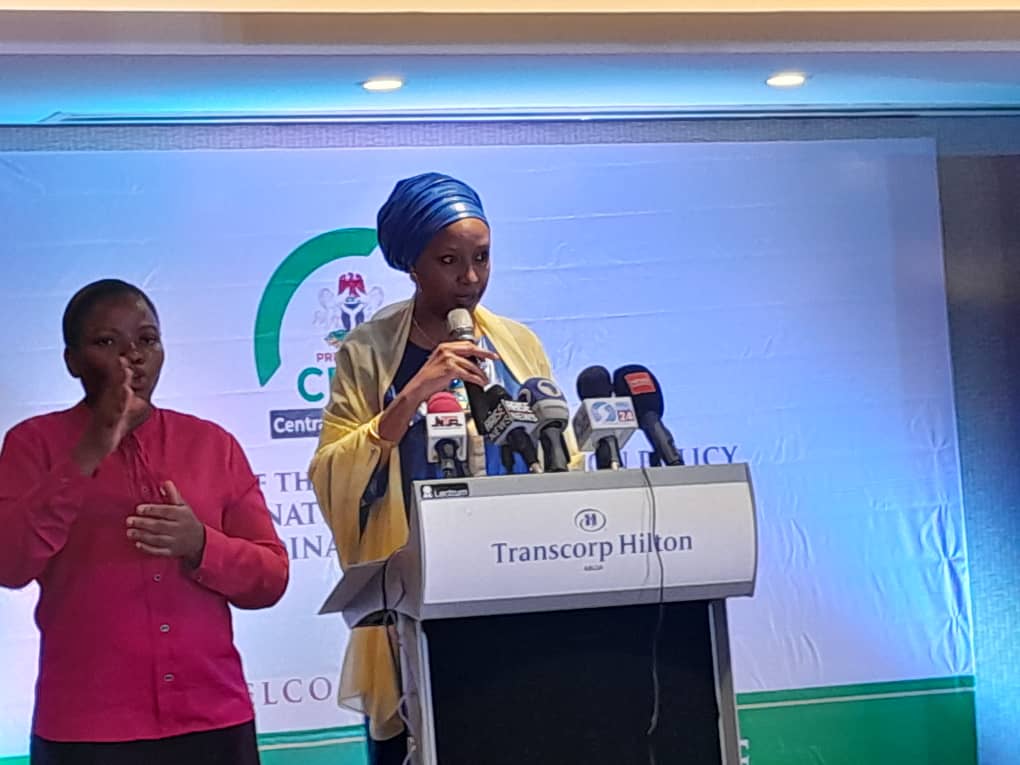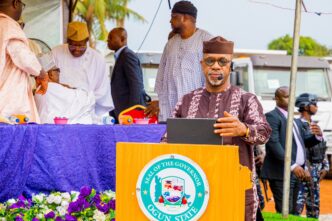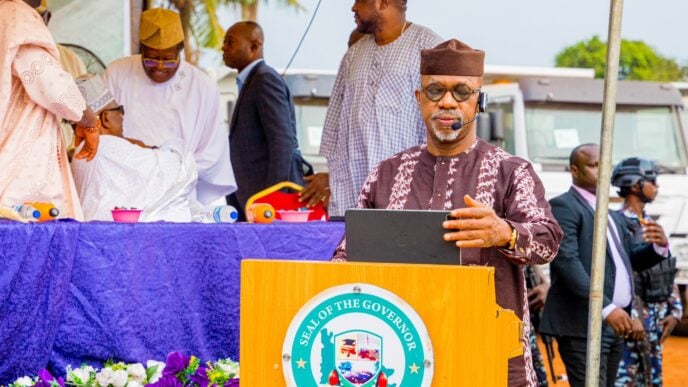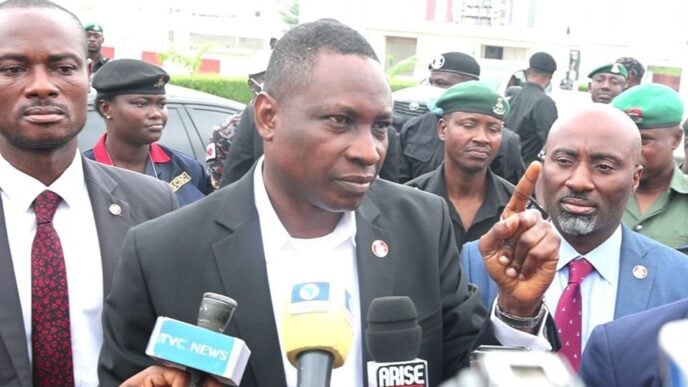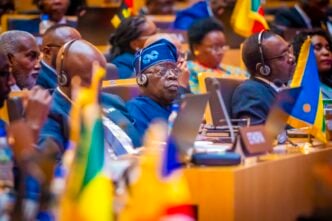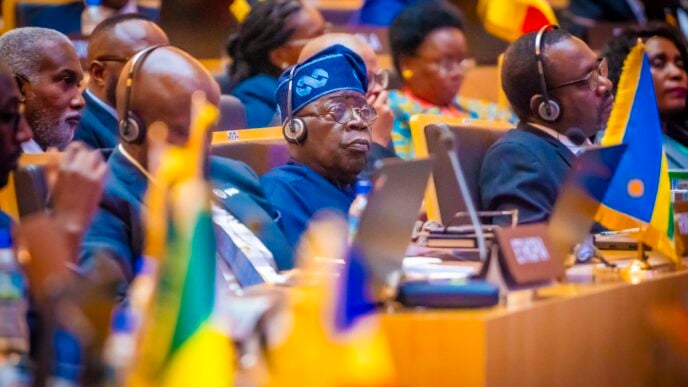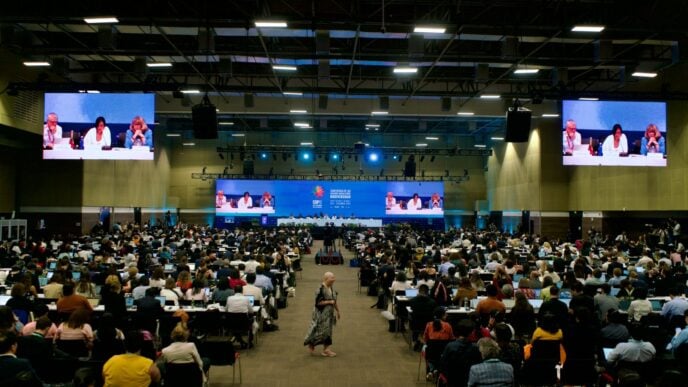Hadiza Bala-Usman
BY ORIYOMI ANTHNOY
Although I’m not an enthusiast of the Bola Tinubu political school of thought, the president’s decision to create a delivery unit, which he announced late 2023 gave me hope that Nigeria’s democracy was poised for some traction. In my close to four decades on this planet, I do not know of any Nigerian government that is deficient in the creation of policies. Even the military administrations that I grew up knowing had sprinkles of potentially impactful policies, which only failed because of a lack of fidelity in implementation and monitoring.
If the president was deciding to initiate a delivery and coordination unit and give bite to it the way he passed a vote of confidence in Hadiza Bala-Usman in that viral soundbite, he must be onto something revolutionary, I reckoned. I, however, only recently realised that this idea of the Central Results Delivery Coordination Unit, (CDCU), headed by Tinubu’s special adviser on policy and coordination, the well-respected Hadiza Bala-Usman, in fact preceded the administration!
I was told by one of my civil servant friends in Abuja in a recent conversation that the CDCU was actually established by the Muhammadu Buhari administration, Tinubu only saw value in it and decided to build on what his immediate predecessor created. I still find his choice to empower the unit one worthy of commendation, even though the conversation I spoke about was inspired by concern about what the CDCU represents several months after the president had warned ministers the importance he would attach to this unit and how non-performing ministers would be shown the door. Over one year on, I felt the country had only seen an underwhelming and disappointing cabinet reshuffle which left the average Nigerian with the impression that politics, rather than a lack of performance, dictated the removal of the ministers sacked.
Advertisement
While it is impossible to suggest that some of the newly appointed ministers do not merit their call to national service, there are many evidently underperforming, if not outrightly incompetent characters still sitting in ministerial offices currently. I was wondering if the CDCU was living up to its expectations and it was while expressing my frustration at this seeming betrayal of hope that my friend, who is a director of planning, research and statistics at his ministry, gave me some heartwarming information.
My civil servant friend informed me that even though the CDCU is charged with the responsibility to coordinate and monitor the implementation of the president’s priorities, it is not really about the removal of ministers. He explained that a lot of times, ministers encounter bottlenecks that impede their capacity to deliver on their duties and that the unit is empowered to work with ministries to identify and tackle these impediments. In essence, the CDCU is like a coordinating body, which serves as the bridge linking ministries, agencies, and departments to ensure that government policies and programmes are implemented in a seamless and effective manner.
For example, if a social investment programme requires input from the ministry of finance, the ministry of humanitarian affairs, and state governments, the CDCU ensures that all these stakeholders work together. Instead of waiting months for inter-agency collaboration that may never happen, the process is now structured, efficient, and results-driven.
Advertisement
Regardless, the CDCU is expected to assess the performance of MDAs based on already mutually agreed parameters. He explained that the eight priorities of the President have been broken down into deliverables which are associated with key performance indicators. The CDCU comprises delivery managers who are assigned to priority areas and ministries associated with them.
He explained further that one of the most critical reforms introduced by the CDCU is the establishment of ministerial delivery committees in all ministries. These committees, chaired by the minister, include the permanent secretary, heads of agencies, and key directors.
The committee is expected to meet every month to assess how far each ministry has gone in implementing its deliverables. With this system in place, every ministry is required to track, report, and improve on its commitments to ensure the administration delivers on its promises. Ministers are no longer just political heads—they are now directly responsible for ensuring that projects move from paper to the people.
Using the example of his ministry, he explained that ministries are now more proactive, more accountable, and more connected in their approach to governance, describing this as a clear shift from bureaucracy-driven stagnation to action-oriented leadership.
Advertisement
This conversation inspired some hope about what the next couple of years holds for Nigeria. Thinking about it again though, I reckoned that achieving anything positive is totally dependent on the cooperation of every stakeholder in this delivery value chain. While the CDCU stands in a very important position, ministries and agencies must do their own bit in ensuring that the administration achieves its aspirations, and that Nigerians begin to enjoy the benefits of good governance.
Anthony, non-profit and development professional, writes from Lagos.
Views expressed by contributors are strictly personal and not of TheCable.
Add a comment
